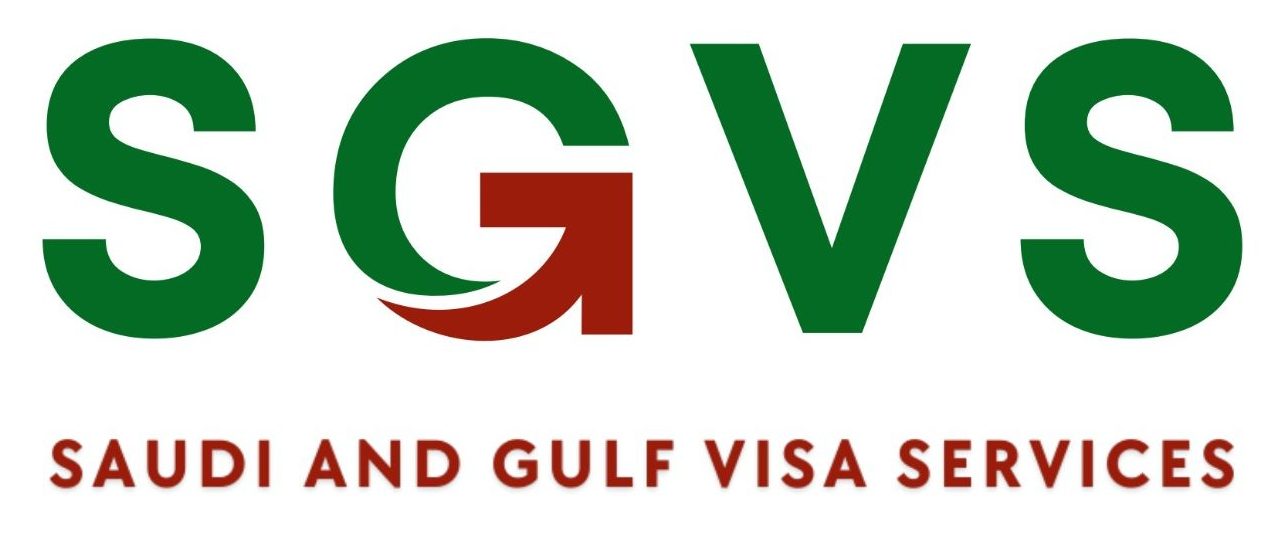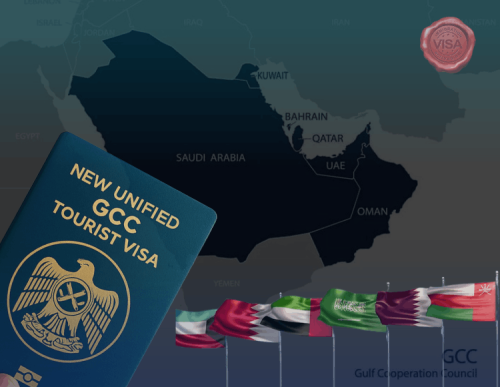
Sponsorship Rules for French Employees Applying for a Saudi Work Visa
September 26, 2025
Can a Saudi Business Visa Be Applied for from the UK While Holding a Residence Permit?
November 10, 2025As U.S. companies expand their presence into the Gulf region — whether setting up new offices, sending consultants on short-term projects, or managing long-term assignments — visa compliance has become a critical part of corporate operations.
The Gulf Cooperation Council (GCC) countries — Saudi Arabia, the UAE, Kuwait, Qatar, Oman, and Bahrain — collectively host over 30 million foreign workers, accounting for some of the world’s highest proportions of expatriates per capita. With such a diverse workforce, local authorities are paying closer attention than ever to how companies manage their immigration and employment compliance.
For U.S. businesses, this means every deployment into the Gulf must be strategic, accurate, and fully compliant with local regulations.
The Growing Focus on Visa Compliance
In recent years, Gulf governments have modernized and digitalized their visa and labor systems. Platforms such as Saudi Arabia’s Qiwa and MHRSD portals, and the UAE’s integrated ICP and MOHRE systems, have improved transparency but also increased accountability for employers.
According to a 2024 study by the Migration Policy Institute, the GCC now represents roughly 11% of the global migrant workforce — a figure that continues to grow as the region attracts more international investment and expertise.
Meanwhile, initiatives like the upcoming GCC Unified Visa, which aims to allow travel across all six member states under one permit, will further reshape how international companies manage compliance and cross-border mobility in the Middle East.
Top Visa Compliance Strategies for U.S. Companies
1. Conduct a Comprehensive Visa Compliance Audit
Before sending any employee to the Gulf, conduct a full review of your company’s visa procedures. Identify which entity will act as the local sponsor, confirm which visa type is appropriate for each assignment, and verify documentation such as medicals, police clearances, and attested qualifications.
Each country has unique requirements. For example, Saudi Arabia mandates iqama (residence permit) registration, while the UAE requires local sponsorship under an entity with a valid establishment card. Missing even one procedural step can delay deployment by weeks.
2. Maintain Centralized Records and Renewals
Compliance is only as strong as your tracking system. Keep an up-to-date register of all employees working in the Gulf — including visa numbers, expiry dates, and renewal reminders.
Using a centralized compliance dashboard or mobility software can help prevent lapses, missed renewals, or overstays. Regular internal audits also ensure that HR teams and local partners remain aligned.
3. Understand Local Labor and Immigration Frameworks
Compliance is only as strong as your tracking system. Keep an up-to-date register of all employees working in the Gulf — including visa numbers, expiry dates, and renewal reminders.
Using a centralized compliance dashboard or mobility software can help prevent lapses, missed renewals, or overstays. Regular internal audits also ensure that HR teams and local partners remain aligned.
4. Ensure Proper Sponsorship and Pre-Deployment Approvals
Before mobilizing employees, confirm that your local partner or entity holds the proper licenses to act as a visa sponsor. This includes securing necessary clearances, such as the block visa approval in Saudi Arabia or labour quota allocation in the UAE.
Additionally, ensure all pre-deployment requirements — medicals, background checks, and digital documentation uploads — are completed before the employee’s arrival to avoid entry denials.
5. Stay Informed on Regulatory Updates
The Gulf’s immigration landscape evolves rapidly. From changes in visa validity periods to updates in digital submission platforms, staying informed is essential.
U.S. companies should subscribe to reliable global mobility updates from sources such as KPMG’s GMS Flash Alerts or partner with licensed immigration consultants who monitor regional policy changes in real time.
6. Train and Communicate with Employees
Compliance isn’t only a company responsibility — employees must also understand their obligations. Offer clear briefings or handbooks explaining visa conditions, renewal timelines, and local conduct expectations.
For instance, in Saudi Arabia, carrying an iqama at all times is legally required, while in the UAE, visa holders must avoid engaging in work outside their sponsored entity. Awareness reduces compliance breaches and protects both the company and the individual.
7. Manage Exits and Repatriations Properly
Compliance continues even after an assignment ends. Ensure that visas and residence permits are cancelled correctly, sponsorship is transferred or released, and exit documents are issued through official channels.
Failing to follow exit procedures can cause future visa rejections for both the company and the employee.
8. Leverage Technology and Local Expertise
Partnering with trusted immigration service providers can help U.S. firms maintain oversight while minimizing administrative complexity.
At Saudi and Gulf Visa Services Limited, our U.S. team works directly with Gulf authorities and accredited local partners to ensure every application is accurate, timely, and compliant. By combining technology, in-house expertise, and government liaison experience, we help employers reduce risk while maintaining operational agility.















